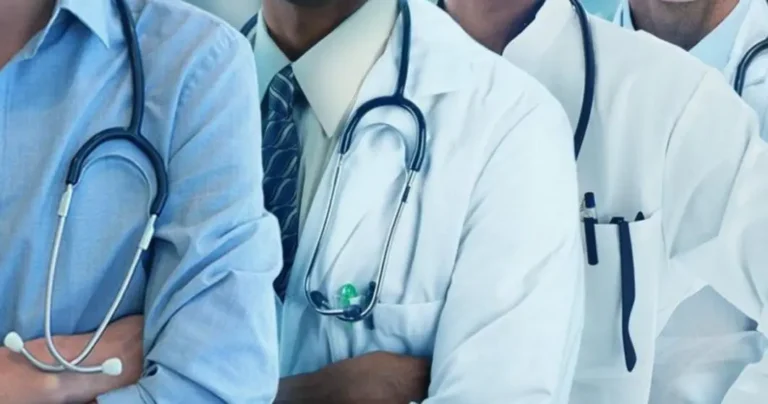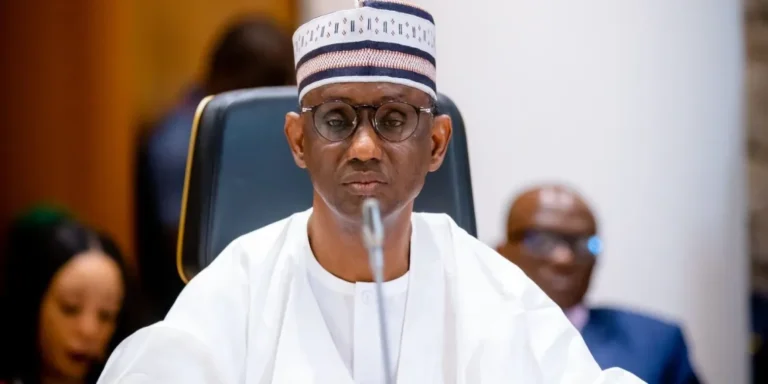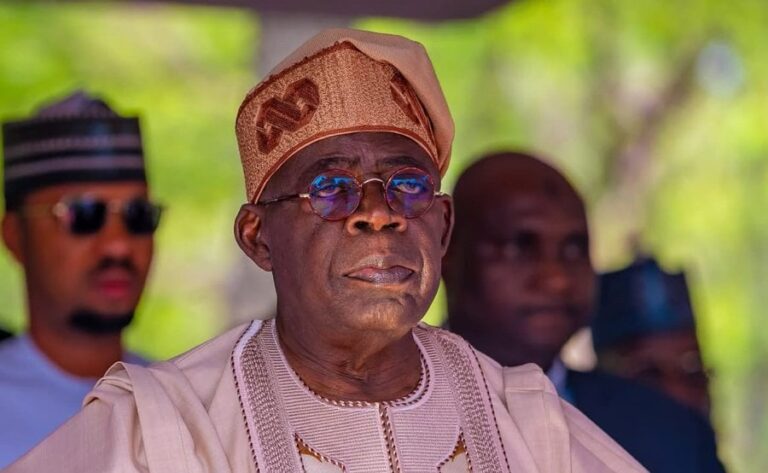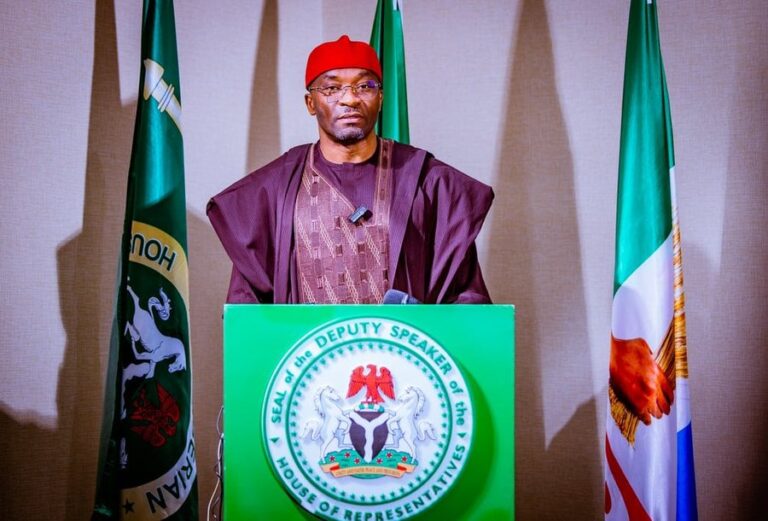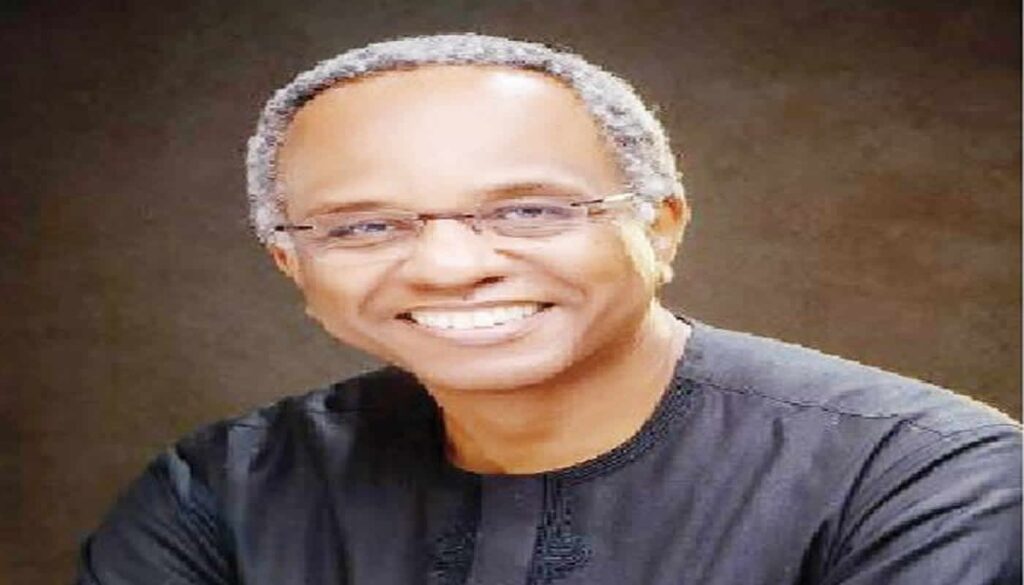
In this interview with TANA AIYEJINA, a former Lagos governorship candidate, Funso Doherty and chieftain of the Peoples Democratic Party, speaks on the state of Nigeria’s opposition politics, the internal dynamics of the PDP ahead of 2027, the President Bola Tinubu administration and his vision for Lagos if elected governor
A lot of people are disturbed that the PDP, which used to be the foremost opposition, has been hit by several defections and infighting. How would you describe the state of the party ahead of the 2027 election?
The PDP is still the main opposition. We indeed have the likes of the Labour Party and more recently the African Democratic Congress coming up to join the ranks of opposition, but the established structure, the history and the institutional capacity of PDP cannot be diminished. It’s also true that there are some defections, but it is not unusual to see defections from the opposition party to the incumbent party after elections. We see it cycle after cycle, so it’s not something to draw too many conclusions about. I think the PDP remains strong. PDP is the only major party where you will not see factions. It is not factionalised. We have the main organs of the party. We have one National Executive Council, one National Working Committee and those things that you think of as normal factions do not exist. We had one concern about the National Secretary some time ago, where there was some dispute. But, as you know, that has been resolved. So the party is actually united today. Yes, we have lost some members, but we are united and heading in one direction. You mentioned the fact that it appears that the FCT minister is distanced, to some extent, from the main organs of the party in terms of where he stands on a number of issues. That may be so, but at the end of the day, he’s one individual. If the party is resolute in the direction in which it is headed, then no matter who you are, as a single individual, you become a lone voice, and you cannot overwhelm the direction that the party has chosen to take. So I think we’re in a good position for 2027. We have resolved many of the issues that needed to be resolved, and we’re on a clear path to 2027. As you know, our convention is scheduled to be held in November. We’re actually in the process of doing congresses across many states. So we are resolute. We are committed to giving the Nigerian people a viable alternative to the pain and suffering that they’ve experienced in the past few years.
But political analysts question why it has been difficult for the party to actually deal with the perceived anti-party activities of FCT minister, Nyesom Wike.
Well, you know that a political party is not a military setup. Political parties are, by their nature, products of consensus, products of collaboration, working together. And it’s only when things irretrievably break down that you see the hammer coming down. So it’s something that political parties take time to do, even when they’re going to do it. Secondly, I think that what is most important is not focusing too much on one or two players. It is really more about bringing the main organs of the party together and ensuring that there’s a commonality in the direction. That is far more important than going around trying to wield a stick at one person or the other. This is because if we do not resolve the issue of unity, if we are not united as a party and around our key organs, then the number of people you have to deal with will be very large. But if we organise ourselves and are united as a party, and we have our NEC, we have our convention, we have all of these things working, which we have been doing now, then the remaining part becomes very easy. So, if you even have one or two dissenting voices within the party, they cannot derail the direction in which the party is going. You are much, much stronger as a unit, and that is where we’ve worked to get ourselves to, and that is where we are.
You contested the last governorship election under another the African Democratic Congress before joining the PDP. Between that time and now, how would you describe Lagos?
I don’t see a material change between where we were at the last election and today. I also don’t see a material change from where we were, even 10 years ago. The truth of the matter is that Lagos has been essentially under one administration for about 26 years now. People would typically define a generation as 20 to 30 years. So, that’s the span of a generation. The main problems which Lagos faces, which we are looking to address, and I seek to address, are essentially ensuring that Lagos is run for the greatest good for the greatest number. That is the philosophy that needs to permeate the governance of Lagos, and that is what has been missing from Lagos. It is not as if you cannot point to one or two things as being done. But when you look at the quality of life of the average Lagosian, the schools that they have access to, the quality of education in public schools, the quality of public health that they have access to, the housing options that they have access to, you wonder. Do they have water? Do they have power? What quality of transportation do they have for the mass population? You will see that many of the things that we point to as advantages that we’ve seen in Lagos are advantages that have accrued to a small number of people rather than the greater good of the larger population. This is even though Lagos has by far the greatest resources that the nation has than any state or subnational federation. It is true that we have a larger population, but that larger population itself can be turned into an asset to even increase the wealth generation and the common wealth that the state can use to take care of its citizens. So, when we assess the governance of Lagos, in terms of the outcomes of governance, which are the welfare and the security of the people, I don’t think we can score Lagos very high. It is true that you may say that Lagos has more infrastructure than maybe Zamfara, but the next question you ask yourself is what resources have been at the disposal of those who have governed Lagos, relative to the resources that are available to some of these other states? And what have we done with them, and what outcomes have we produced for the citizens of Lagos broadly with these massive resources that we spend year in, year out for almost 30 years? As you may know, the budget for Lagos state is in excess of N3trillion this year. I mean that is miles apart from that of other states in the federation. So, just as in the biblical story of the talents, to whom much is given, much is expected. And the man who is given 10 talents is expected to produce 10 more, not three or four.
You intend to again throw your hat in the ring for the number one position in Lagos. What lessons did you learn during your first experience, and how do you hope to put them into use for a second try?
Well, one of the first things that we did after the last election was to take some time to reflect on the outcome of the last election and to assess what went well and what we needed to work on. That exercise is what led to my being in the PDP today rather than the party where I contested the last election. This is because we believe it is important to have a national platform that has an established structure, and that our candidacy and the existing structure can complement each other to become a strong force in the electoral process. In the last election, we were told by many people that we had a very strong candidacy, but we didn’t have the platform that could deliver victory. And many of those who stood with us were eager for us to address that, and we have. So, as we come out and the next election approaches, we believe that we are in a much stronger place where our candidacy is strengthened, but importantly, our platform is a strong national platform where we can present to the people a compelling proposition of a strong candidate on a strong platform with a strong manifesto for the people of Lagos state. Quite a lot of people are of the opinion that it will be a herculean task to take over the government of Lagos from the APC, as one party has ruled since 1999. It is also the same party at the centre. This has always been the narrative, that it is a herculean task, but I don’t think it is. First, is the fact that if you look at the voter turnout in Lagos, that is the number of votes in each election in comparison to the registered voters, not even the population now compared to the registered voters; that number is very low.
It’s one of the lowest – if not the lowest- in the federation, and it has been declining with each election cycle. What that tells you is that there is great apathy and dissatisfaction with what is going on.
In the last couple of elections, there’s been roughly a million votes in Lagos state for the governorship and even the presidential election. Registered voters are about seven million. Think about that.
So basically, one out of six registered voters has participated in the election. If you can just get one other person out of that remaining six to come out, you would double the number of votes.
Second, if you look at the last election, the incumbent party lost the presidential election in Lagos. This is not conjecture. These are the Independent National Electoral Commission-declared results. So it’s not theoretical, it’s practical. So it is very clear. And if you look at the body language and the behaviour of the incumbent party, you will see that they also are very uncomfortable. They are not at ease. And they know that their position, which may appear like a dominant position, is actually a tenuous hold.
I should also say that when we talk about division, dissatisfaction within parties, the ruling party is not exempt from that, especially in Lagos. And if you look at some of the events that have unfolded, even since the last election, in terms of the interactions between the party, the executive arm of government, the legislative arm of government, and the leadership of the House and all of that, you will see that, even though the ruling party may want to paint a picture that its opponents are divided, it also is not a paragon of unity in its behaviour in Lagos. So, people should just stay tuned. We are not daunted. We know that the task is not an easy one, but there’s nothing that you do that is significant in life that is easy. But we know certainly that it is not an impossible task.
In fact, it is not an improbable task, and we are adjusting ourselves to it.
Do you agree with those who feel that the ruling party has a hand in the crisis that, like you said, has plagued the PDP?
It’s not just PDP. It’s the Labour Party. It’s ADC. You can see it. Do I have documentary evidence? No. But is there a strong likelihood that it has a hand? But do I think it is something that we should spend a lot of time talking about, wailing about, or complaining about? No. I think we should just do what we need to do and do the work right, and fight our own battle -knowing that this is part of the game. So, it’s not the job of the ruling party to help us. It is, in fact, if they see an opportunity to hinder us, they will. So, we should just organise ourselves and move on. So, I don’t spend a lot of my time thinking about whether it is the ruling party that is causing so much division or not so much division. I think that we should just pull up our socks and do what is required of us.
What will Funsho Doherty Lagos look like if he gets the opportunity to govern the state?
People can expect a government that works for them. People can expect a Lagos state under Funsho Doherty that would be an inclusive state, not an extractive state. I use those two terms advisedly. A lot of the governance that we have seen so far has been extractive in nature, benefiting a few at the expense of the many. We will have a fundamentally different approach. I talked about the philosophy of the greatest good for the greatest number. We do that through inclusive governance. Every decision that we take as a government will have one paramount thing in mind – public interest, broad public interest. What will that translate to? It will translate to a number of things.
First of all, we will clean up and reform the government and ensure that the government governs for the public interest and not self-interest. In doing that, we will block many of the leakages that exist today that cause the commonwealth of the people to end up in private hands. If we think that Lagos has money today, we have not seen anything in comparison to what Lagos could have if we block the resources of the people that are ending up in private hands. So, point number one is the philosophy of government. Secondly, there is this notion of inclusive governance. In education, for example, we will have a policy of education that, in truth – not just in words – provides for free education up to senior secondary level, both academic and vocational. We will expand vocational and technical training dramatically because this is what is needed in the workforce in Lagos.
Healthcare. We will have free healthcare for children in Lagos. We will also have free maternal care or maternal and child care. Also, transportation for children going to school and back should be free. Kids will have one meal in school, free. We will expand public transportation in such a way that more and more people can benefit from it. One of the things that is touted by the present government is the rail line, but if you look at how many people are being served by quality transport in Lagos versus other options, you will see that it’s very little.
When that line was being mooted, the plan was that it would carry 500,000 passengers per day. That’s what we were told. After two years, it’s less than 500,000. So that’s about 6,000 per day in comparison to the 500,000 – 6,000 versus 500,000. This is after almost 15 years of working to deliver it, and we don’t know how much was spent.
So there is so much to do. And what is clear is that so much more can be achieved with the resources of a state like Lagos if it is managed well in the interest of the people to produce inclusive governance and improve the quality of life of the people. And that will be our focus from day one.
We will do it, and I can tell you that in the course of eight years, we can transform the governance of this state. And my goal will be that by the time I am exiting the leadership of this state, after governing it for eight years, we will have institutionalised good governance in the state of Lagos and be well on our way to first-world status in such a way that those changes will endure after I leave office. That is my plan.
So what’s your opinion about the ongoing reforms by the present administration to the President?
There are many. So, are you talking about economic reforms? Economic reforms, mostly. So in the area of economic reform, I think that clearly the Nigerian economy is very challenged as we speak today. Not all of those challenges indeed arose under this administration. Some of them were the result of actions that have been taken in previous administrations. But bear in mind, those administrations, at least the most recent, are of the same ruling party. Having said that, the two main policies that people speak about are the foreign exchange policy and the oil sector policy – that is, the petrol subsidy policy. A lot of the other things flow from those two things? So, it is clear that for those two things – the petrol prices and the foreign exchange- there was a need for some reforms. However, I think that the process by which this administration implemented those reforms leaves a lot to be desired. They could have done much better in the implementation of it. This is because when you take policy measures, it is not just which policies you take, but how you go about implementing them, the timing of them, the approach you take, and the complementary measures that you bring into place. So, that is where this government dropped the ball, and I think it has failed the people. And you see what those policy reforms have produced in terms of pain and suffering for the people. Yes, there may always have been a need for some adjustment by people. But it does not have to rise to the level of pain and suffering that we have seen. I will give you a concrete example of what I am talking about. If you look at the FX policy, the approach that was taken was to free the FX rate. That could have been better managed by looking at, first of all, the FX that we had, which was used up in the few years leading up to the crisis that we had. Where did it end up? How can we use that to cushion the effect of the liberalisation once we leave? This is not something that has been done elsewhere in the world. What do you do before you do something like this? You get your house in order, you get a stock of FX, and then you liberalise it through a process that manages that process of liberalisation. For example, many of the banks had stocked up on FX, and these are the players who operate the FX market. If we had managed that foreign exchange liberalisation well, perhaps we could have stabilised the rate at 800 or 900, rather than the 1,600 that we eventually got to. So you would have done the same policy measures, which are liberalising the foreign market, but, because you managed it well, you would have managed it at a more stable rate. So the implementation actually had a big impact on the pain that people are feeling. The final thing that makes the government have poor credibility is telling people to tighten their belts and endure their suffering, but they have to see that the people in government are also facing the same thing. In fact, it looked like the people in governance are even getting excess even as they ask people to tighten their belts. As anyone who has run an organisation will say, people look at what you do and not what you say. You can talk from now till tomorrow, but if your actions don’t demonstrate it, then people are not fooled. I think this undercuts the credibility of so many economic reform measures that the government has taken.
Sports is one area you are interested in. What plans do you have with this veritable tool to take away a lot of Nigerian youth from the street?
Sports are a vital tool; they’re useful both within and outside school to engage the youth. So, it will be central, and I think it is one of the areas where we can be world-class by giving the right investment and support. And my administration will support it both within the school system and outside the school system. We don’t want any situation where any youth within school age is out of school. So the notion of out-of-school kids is also a big area for us. So, both within schools and outside of school, technical school, and sports are a central component of youth engagement.
PUNCH.

